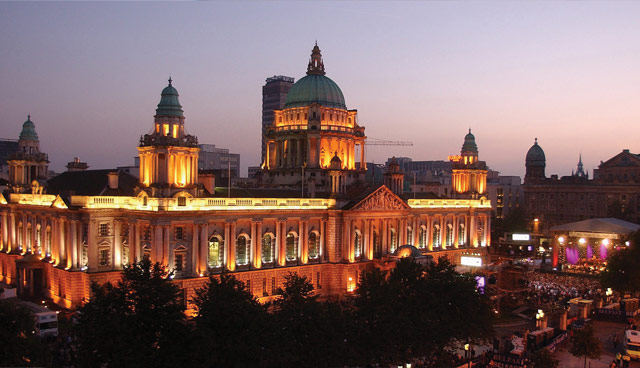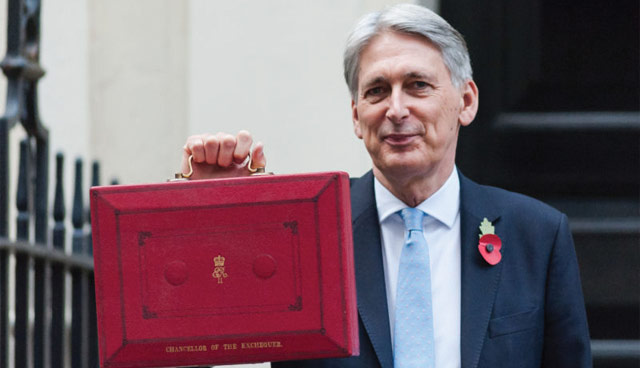Stand-still Budget

£320 million for the Northern Ireland block grant, £2 million for Belfast’s recovery from the Primark fire and £350 million for a City Deal were the headline figures. However they could not mask a budget that was flat in real terms, despite delivering a 2 per cent day-to-day cash boost.
Upon announcing the Budget, Chancellor of the Exchequer Philip Hammond told the Commons that it “sends a clear message to the people of Northern Ireland – your hard work is paying off”. DUP deputy leader Nigel Dodds took the opportunity to claim his party’s responsibility for the deliverance of “unprecedented” funding for Belfast, but others are expressing concern at a Budget that they assess sees Northern Ireland standing still at best.
Sinn Féin MP for Belfast West Paul Maskey called the Budget a “serious let down” and lamented that “major projects will have to be dropped” from the Belfast Region City Deal after the announced £350 million fell short of the £450 million requested. He added that “disgracefully the North West has received nothing but more promises” after Hammond announced negotiations would begin for a Derry City and Strabane City Deal following the detailing of Belfast’s deal.
Spread over 10 years, the City Deal will focus on the creation of centres of innovation, digital connectivity, tourism and transport across Belfast, Newtownabbey and Antrim, Mid and East Antrim, Ards and North Down, Lisburn and Castlereagh and Newry, Mourne and Down. Northern Ireland is the last region of the UK to be awarded a City Deal, with over 30 having already been awarded in Britain. It is projected that the deal could create as many as 20,000 jobs in the Belfast region over the 10-year period. Northern Ireland Retail Consortium (NIRC) Director Aodhán Connolly noted that while Belfast had not received what it had asked for, the £350 million was “still a greater per capita spend than other city deals” and called for private sector money to be leveraged in support.
Connolly said that the NIRC were “grateful” for the £2 million payment in support of retailers in Belfast City Centre after the Primark fire, but, like the City Deal, the amount is said to have fallen short of expectations.

The region will also receive £320 million for “a Northern Ireland Executive” and will see increased funding as part of the transforming cities fund. £15 million for trialling new models of digital investment and £9 million for new transport models will be shared between Northern Ireland and England’s north-east and south-east. The Budget also included the announcement that £300 million worth of projects for shared and integrated education funded through the Fresh Start Agreement would be brought forward.
UUP MLA Steve Aiken said that there was “little in this Budget to suggest that things will improve here anytime soon” and specifically criticised the announcement of the £300 million education funding as the “same money being constantly re-announced”. Department of Finance analysis provided to the BBC backs Aiken’s assertion that the increases in funding will be used to “plug existing holes”; the projected rise in Northern Ireland’s day-to-day spending of £242 million by 2019/20 is a 2 per cent increase in cash terms but is flat in real terms.
Should the increase reach the expected level of an extra £242 million per day, day-to-day spending will still be at a relatively low level, lower than 2009/10, 20010/11 and 2011/12. Cuts to a health service, said to need an annual 6 per cent increase, directly contradict Hammond’s assertation that “austerity is over”. The recent end to pay caps for health staff is a welcome boost, but Hammond’s Budget will make them better paid employees within an underfunded sector on the back of stagnation for almost 10 years.
There is little in the Budget that suggests Northern Ireland’s private sector will fare better than its public sector. The announced cutting of business rates by one third for two years from April 2019 will not apply to Northern Ireland, but the Digital Sales Tax – a 2 per cent tax for online companies on their UK revenue – will. More necessary tax raises have been sidestepped in the Budget, but it is impossible to see how a true end to austerity can be achieved without significantly increased public spending, which will only be funded through such tax hikes.
Looming over any discussion of Northern Ireland and the Budget will be the matters of Brexit and the lack of a sitting Executive. Brexit has made higher taxation inevitable, but simultaneously created an atmosphere wherein announcing such measures could spell the end of a Chancellor’s career. Taxes will have to be raised eventually; should a no-deal Brexit come to pass, those raises will come sooner than expected. The least antagonistic likelihood is that Hammond’s projections will have to be altered to even less ambitious figures as the entanglements of Brexit are sorted through.
There has been concern over Northern Ireland’s failure to secure an initiative similar to England’s £675 million high street fund and the finger has been firmly pointed at the lack of an Executive and Assembly. Expectations have been raised by the City Deal, but the reality of the devolved government’s absence has kept Northern Ireland’s feet tethered to the ground. Without much of a boost to the public purse, the question remains over whether a resurrected Executive would return to plans to lower Northern Ireland’s corporation tax to 12.5 per cent, a move that can only be completed if the £200 million of public money lost is made up elsewhere. For a decade of low public spending to be over, something else must arrive in its place.





